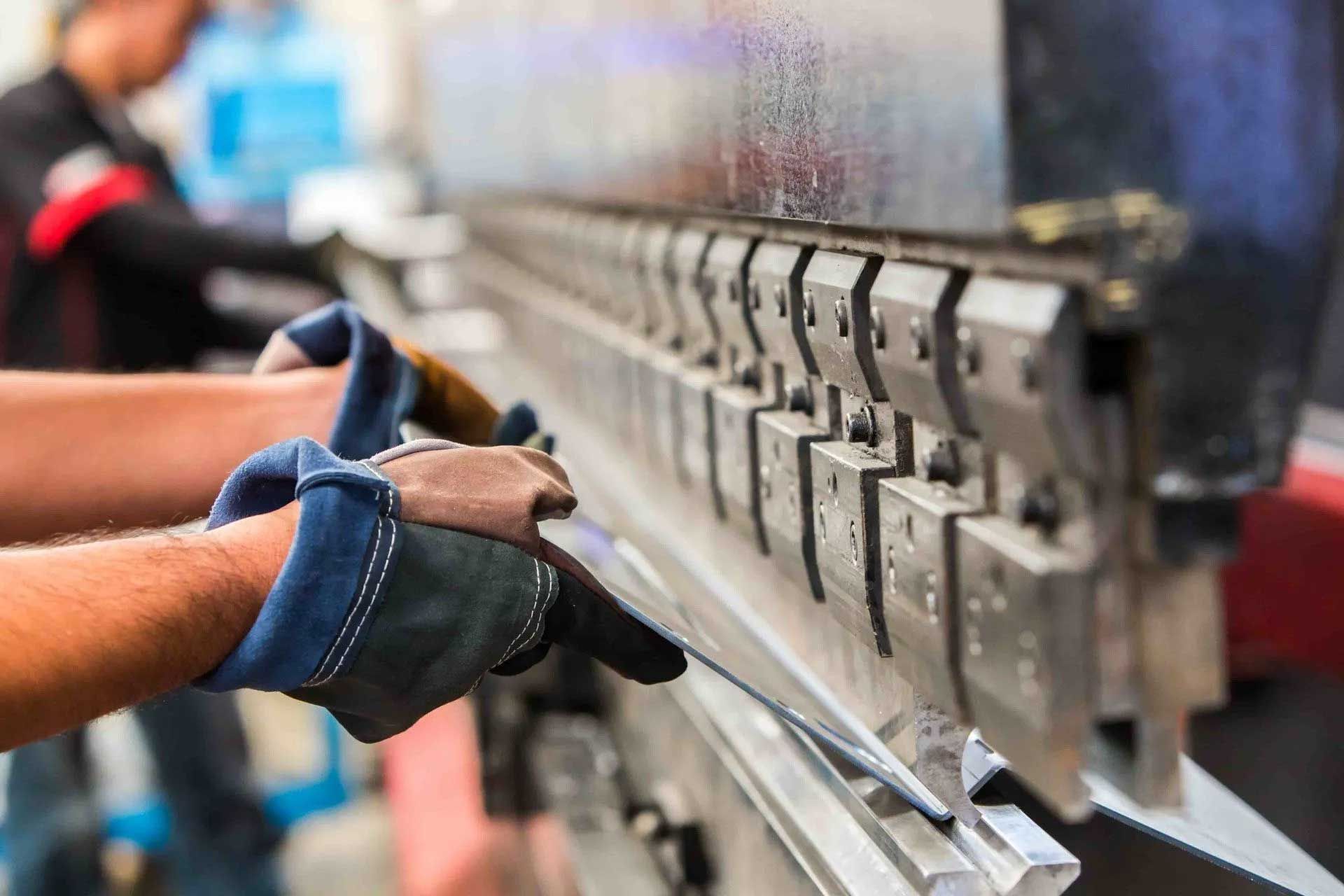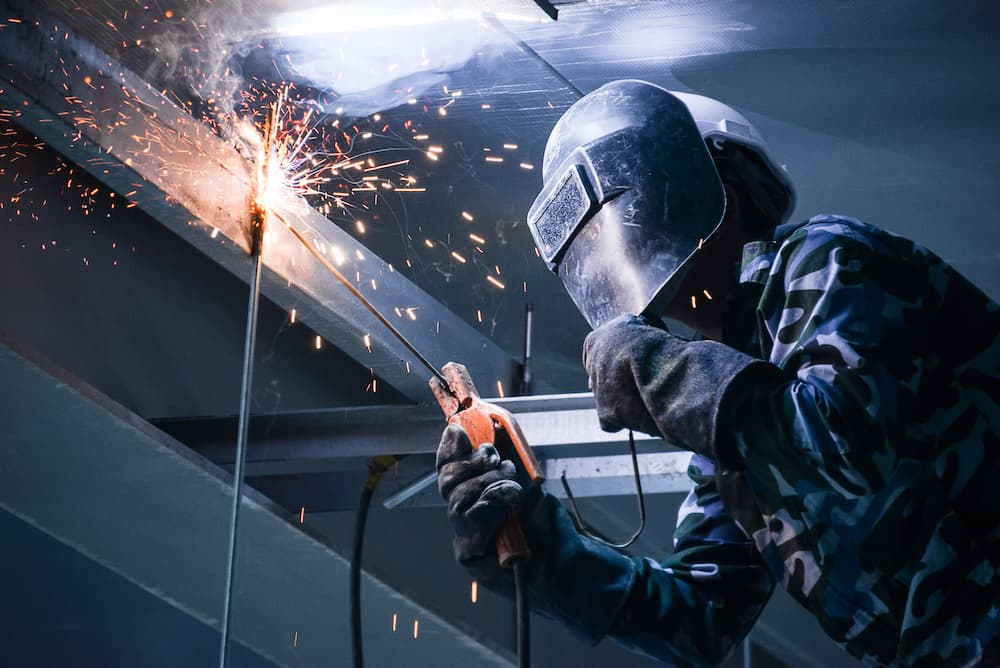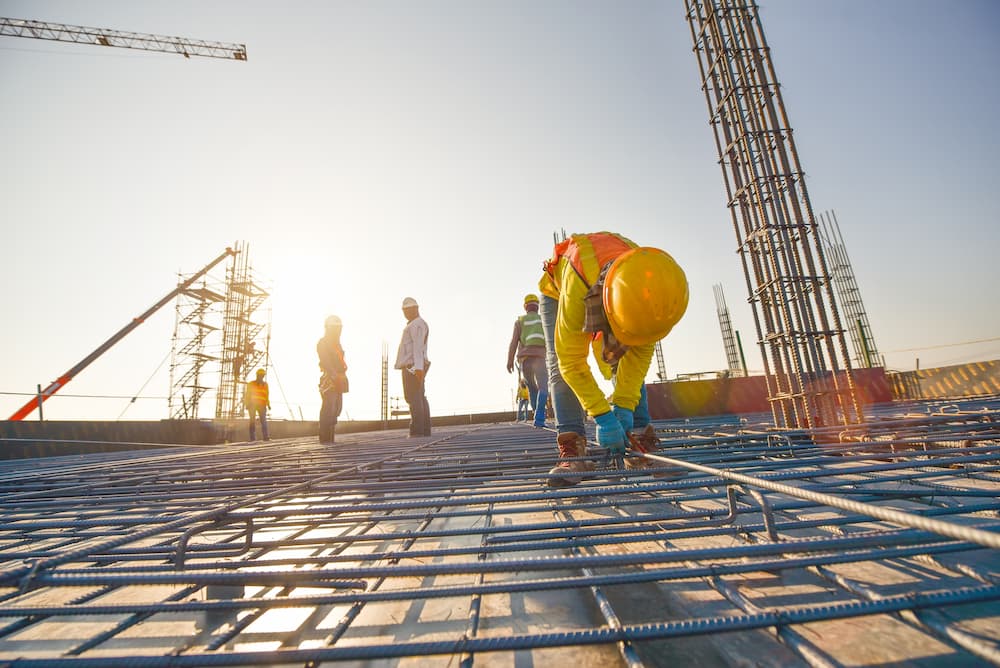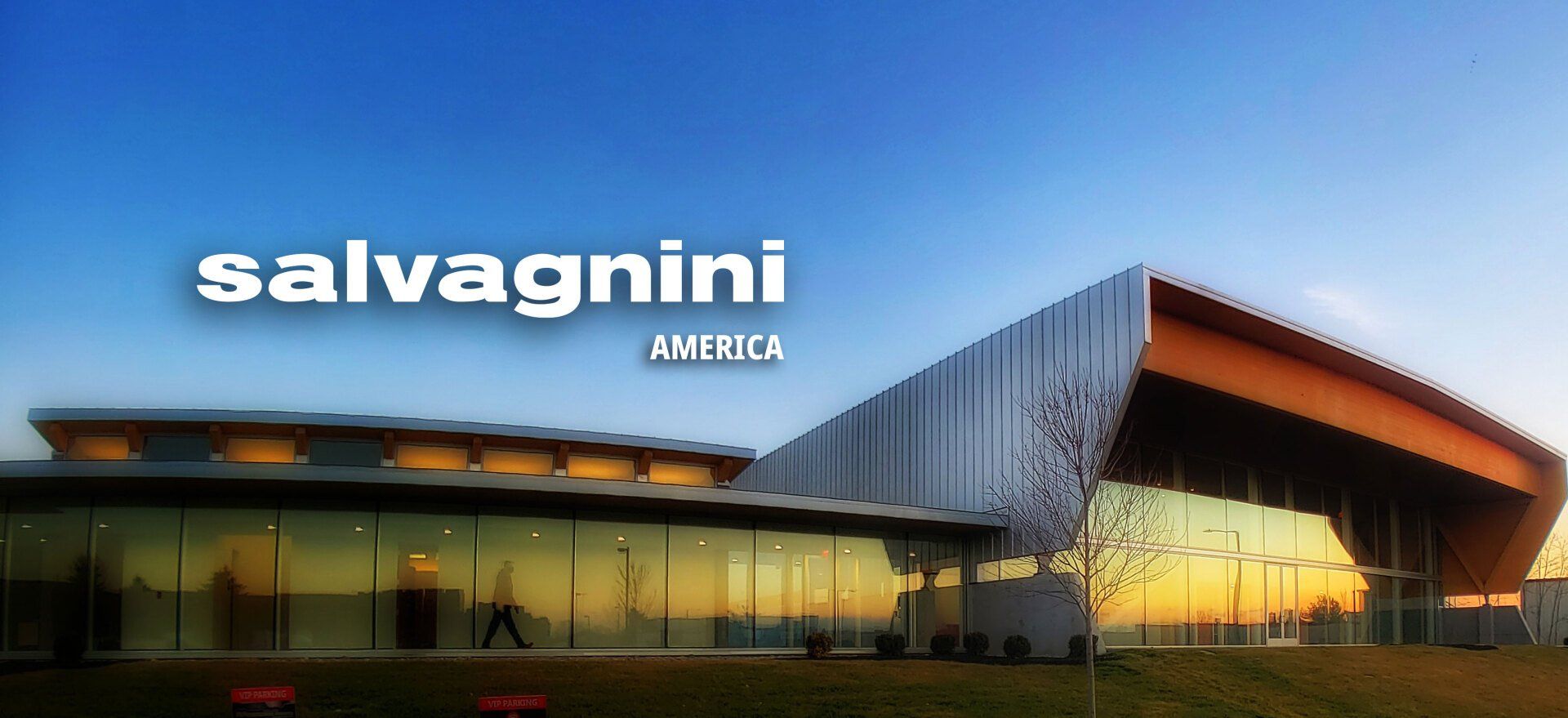An Overview of Metal Fabrication

The Bureau of Labor Statistics estimates that nearly 1.5 million people work in metal fabrication in the United States. Many of the things you use daily were created by metal fabricators. But what is metal fabrication, and how does it work?
What Is Metal Fabrication?
Metal fabrication is the process where raw metal is turned into metal structures by punching, cutting, bending and assembling. The concept has been around for thousands of years: archaeologists have found a huge number of metal tools and trinkets that date back to the Stone Age. If you've ever watched a blacksmith hammer a horseshoe into shape at a Renaissance festival, you have seen a form of metal fabrication.
In modern times, the metal fabrication process looks a lot different from the past! Today, metal fabricators work with punching, cutting, and pressing machines to make metal pieces to their client's exact specifications. They work with fittings, castings, plate metal, welding wire, and more to create projects large and small.
What Does the Metal Fabrication Process Look Like?
While every metalwork project is unique, there are three universal steps in the metal fabrication process.
The first step is the design process. This is the phase when fabricators determine their needs, create shop drawings, and figure out what tools and materials they will use for the project.
Next comes the fabrication stage. This is where the main action happens, and the raw metal is cut, bent, and assembled.
Finally, there is installation. This is where fabricators put the end product together. In smaller projects, this may be a full assembly. In larger ones, they may simply verify the fit of each piece to the others, leaving the final assembly to the client.

Types of Metal Fabricators
Because metal has so many different uses, metal fabricators are split into three fields.
Commercial metal fabricators focus on supplying metal parts to commercial operations and public spaces. Kitchen catering equipment, doors and frames, electric boxes, shelving, elevators, and other such items all come from them. Commercial fabricators also create ornamental metal components for large buildings.
As their name suggests,
industrial metal fabricators serve industries. Their focus tends to be on large-scale projects such as heavy machine parts, storage tanks, and industrial infrastructure. It is very rare for industrial metal fabrication to provide only one part of a project. Instead, these projects complement each other.
Structural metal fabricators create the backbone of buildings. Bridges, skyscrapers, and other megaprojects all rely on structural steel to maintain their strength and longevity. Beyond trusses, rafters, and I-beams, structural metal fabrication is also used to create stairs, platforms, and metal walkways.

How to Choose a Metal Fabricator
A few of the questions you should ask when choosing a metal fabricator include:
- What area does the fabricator specialize in?
- What technology does the fabricator use?
- Will the company handle everything in-house or outsource elements of design?
What Are the Benefits of Metal Fabrication Shops?
You get quite a lot of benefits when you choose to go with a metal fabricator, no matter the size or scale of your project. Because they specialize in the type of fabrication you are looking for, custom metal fabricators can help you drive down your project's cost.
Some of the other benefits of metal fabrication shops include:
- Experts who will help design the project to precisely fit your needs
- Advanced fabrication methods, including laser and water cutters
- Workers who specialize in the machinery you need for your project
Salvagnini America Serves All Types of Metal Fabricators - From OEM to Small Job Shops
If you are in need of a resource to help you with a metal fabrication project, we can advise you on who to contact. If you are looking at developing your own fabrication facility, we will work with you to determine the best metal fabrication machines you need. Salvagnini America is proud to work in all stages of the metal fabrication process, from design to implementation. We work closely with our clients to provide metal to their exact specifications every time.
Contact us to learn more about metal fabrication!

salvagnini america inc.
27 Bicentennial Court
Hamilton, Ohio 45015 USA
513-874-8284
info@salvagnini.com
Salvagnini America Inc,


